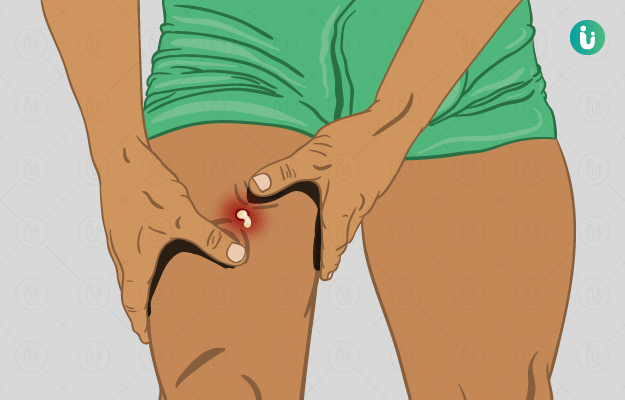What is pus?
Pus is a combination of dead tissue, white blood cells and bacteria. White blood cells fight against the bacteria which enter the body, leading to the death of nearby tissues and creating a cavity filled with pus called an abscess. It can occur in any part or organ of the body.
What are its main signs and symptoms?
The associated symptoms may vary depending on the part affected. The general symptoms associated with pus are:
- Pain
- Fever
- Chills
- A bulge in the affected part
- Swelling and inflammation
- Redness and warmth over the affected part
Depending upon the part affected, it may hamper the activity of that tissue or organ.
What are the main causes?
Pus can occur due to the following causes:
- Skin abscesses may occur when the bacteria find a way to enter your skin and initiate an inflammatory response. It most commonly occurs in the genitals, underarms, hands and feet, buttocks and trunk. The bacteria may enter through cuts, wounds or grazes. Pus due to skin abscesses may also occur if an oil or sweat gland is blocked.
- An internal abscess develops within the body because of surgery, injury or infection that spreads from nearby tissues.
How is it diagnosed and treated?
The doctor will examine the affected area thoroughly and recommend tests to diagnose the cause of the pus and give the correct treatment. The following diagnostic measures are used:
- Blood tests to check the body’s response to any bacterial attack and to identify specific details of an infection
- Biopsy
- Urine test to check for the presence of glucose, which is a sign of diabetes
- In individuals with an internal abscess, X-ray is ordered to get a clear picture of the affected area
The treatment for pus depends on the cause. Pus from small skin abscesses does not need any treatment. Warm compresses prove to be useful for a minor abscess. The doctor may recommend any of the following therapeutic options depending on the cause:
- Antibiotics to treat infection
- A drainage procedure to remove the pus completely through an incision
- Surgery is recommended in individuals with pus in the internal organs.

 Doctors for Pus
Doctors for Pus  OTC Medicines for Pus
OTC Medicines for Pus
 Lab tests for Pus
Lab tests for Pus

















